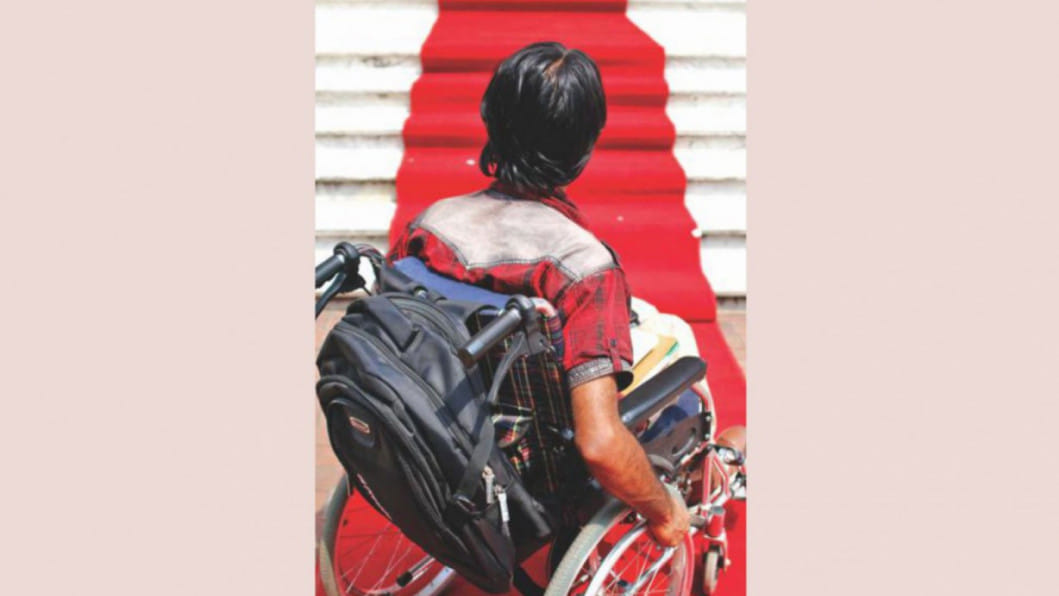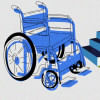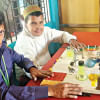Equality remains elusive 54 years on

As Bangladesh approaches 54 years of independence, we envision a future that is truly discrimination-free. Despite commitments from the government and private sector, as well as various progressive initiatives, negative attitudes toward individuals with disabilities persist in both the state and society, compounded by environmental barriers. As a result, we continue to face harassment in key areas such as education, employment, healthcare, housing, property rights, family formation, allowance programs, and disability identification registration. For years, we have raised these issues through meetings, human chains, and memorandums, but there has been no improvement.
State's pessimistic approach
It is disheartening that even 16 years after ratifying the Convention on the Rights of Persons with Disabilities (CRPD), the state remains hesitant to fully acknowledge our inherent dignity.
For over a decade, the globally acknowledged International Disabled Day (IDD) has been transformed and rebranded as the International Day of Persons with Disabilities (IDPD) to promote dignity and inclusion. The term "disabled," implying "a person cannot do," perpetuates negative discrimination and outdated stereotypes. Yet, despite repeated appeals, our government documents remain unchanged, stubbornly clinging to the old IDD terminology. As always, this year too, IDD was celebrated nationwide with grand fanfare on December 3, instead of IDPD.
In various countries, including Dhaka, there are initiatives focused on animals with disabilities. This raises the question of whether this day we observe is truly for the dignity of citizens or for animals with disabilities.
Statistical discrepancies
The inconsistencies in data and statistics on persons with disabilities reveal a troubling reality. The World Health Organization (WHO), estimates percentage to be 16 percent in 2023, suggesting that approximately 25 million people in Bangladesh live with different form of disabilities.
However, the disability identification survey conducted by the Department of Social Services under the Ministry of Social Welfare ongoing since 2013 reports a significantly lower rate of two percent, equating to just 3.3 million people. In contrast, the Bangladesh Bureau of Statistics (BBS) National Survey of Persons with Disabilities (NSPD) 2021 estimates the figure at 4.6 million, or 2.8 percent of the population.
The BBS Household Income and Expenditure Survey 2010 reported a disability rate of 9.07 percent, or 15 million people. Research by economist Dr. Abul Barkat suggests this number could rise to 52 million by Bangladesh's 50th independence anniversary.
Every year, the government publishes data on women appointed to public service, yet no information is provided on the employment of persons with disabilities. Access to data on loans and skill development training remains closed, as the state has joined in obscuring the true number of persons with disabilities.
Crisis of representation and empowerment
While laws like the Persons with Disabilities Rights and Protection Act 2013 and the Neurodevelopmental Disability Persons Rights and Protection Trust Act 2013 offer hope, the coordination committees, executive bodies, and district, upazila, and city committees remain inactive, gathering dust. Persons with disabilities are also excluded from state decision-making and efforts to combat discrimination. The national action plan lacks a rights-based framework, and by sidelining the "CRPD National Monitoring Committee," the government shows gross negligence in implementing the CRPD and honoring its commitments to this vulnerable population.
The lack of representation of persons with disabilities in policymaking leaves us neglected across sectors. Aside from a few NGOs, rights-based initiatives are limited. Without organised strength, we struggle to demand rights. Reliance on donor-funded projects stifles public debate on our rights in political, cultural, and intellectual spheres.
As the quota reform movement began in July 2024, we expected representatives for persons with disabilities to be consulted. Instead, the allocation for our large population was merged with the third-gender community, resulting in just one percent without any consultation.
Striving for an inclusive interim govt
Post-July 2024, efforts to form a diverse interim government focus on reforms for a discrimination-free state, with representatives from minority communities, indigenous groups, and women. Yet, despite nearly 25 million persons with disabilities, none have been included.
How can we build an equitable Bangladesh without our representation?!
We need a representative who understands our issues deeply. We demand the appointment of at least one citizen with disabilities as an advisor to the interim government, along with several as co-advisors. Additionally, seats should be reserved in parliament for men and women with disabilities, proportionate to the population based on the type of disability, from local unions to the national level, ensuring representation at all government levels.
Only then can we empower them and build a discrimination-free, equitable Bangladesh.
Barriers of institutionalisation
Under the current Rules of Business, the issue of persons with disabilities is solely assigned to the Ministry of Social Welfare. While 46 focal points were designated in 2007 across various ministries, today we find there are focal persons for women's issues within ministries, but none for persons with disabilities. The revision of rules to ensure disability-sensitive budgets and ministry-specific allocations remains an elusive dream.
In response to demands from organisations of persons with disabilities (OPD), former Prime Minister Sheikh Hasina announced the establishment of the Department of Persons with Disabilities Development in 2010, as part of implementing Article 33 of the CRPD. The PM inaugurated it in 2014. However, bureaucratic complexities and delays in its implementation raise questions about whose interests are being served.
No one from the government or development sector seems concerned, while neighboring countries have established a 'Department of Empowerment of Persons with Disabilities' under the same CRPD article.
Challenges in education, transportation, and accessibility
Citizens with physical and visual disabilities struggle to become educated and established, while those with intellectual disabilities, autism, Down syndrome, cerebral palsy, severe muscular dystrophy, hearing disabilities, and Deaf-Blind face severe isolation. Employment and education initiatives for them remain distant.
The education of the large community of persons with hearing disabilities is limited to just eight schools in BD. Due to the lack of initiatives, the long-demanded integrated education programs, including Bangla sign language, have deprived millions of students with hearing disabilities of their right to education.
The lack of state-sponsored training for Bangla sign language interpreters prevents access to public services, including healthcare, due to communication barriers. While Braille books are provided for students with visual disabilities, they are not effectively distributed, and the absence of standardised Braille guidelines hinders their ability to study subjects like science and mathematics.
Despite technological advancements, there is a lack of educational resources and accessibility for individuals with low vision. Universal accessibility is not yet implemented in schools, and basic teacher training courses do not include disability as a subject.
Despite government directives and laws, enrollment and education for students with disabilities in general schools remain challenging. There are NO accessible public transport options, and citizens with disabilities are excluded from half-fare benefits. The metro rail offers no free passes for them, and reserved seating in public transport is rarely enforced.
Self-reliance and economic freedom
Education and employment are intrinsically linked, yet significant barriers to job opportunities remain. Despite an increase in government job appointments, the proportional improvement is minimal. In the 1990s, a 10 percent quota for third and fourth-class jobs was introduced, but it was divided with orphans. Allocating just a one percent quota to two underprivileged groups without consulting stakeholders or analysing their statistics and socioeconomic conditions only deepens their inequity. On July 11, 2023, the Ministry of Public Administration ignored persons with disabilities' concerns in the Scriber policy, worsening discrimination among the intersectionals of citizens with disabilities.
Despite a 10 percent quota for third and fourth-grade jobs, job seekers with disabilities face discrimination, even with available positions. This raises the question: how many will benefit from the one percent quota? For 35 years, recruitment has prioritised orphans, leading to high unemployment among citizens with disabilities.
The state and society have failed to create a positive financial, policy, or environmental situation for persons with disabilities. The Ministry of Social Welfare focuses solely on welfare, neglecting initiatives for self-sufficiency. The Tk 20,000 interest-free loan mainly benefits the underprivileged, orphans, and poor widows, with no provisions for low-interest loans for persons with disabilities in government policies for small entrepreneurship.
Among marginalised groups, persons with disabilities face the highest discrimination. In areas where opportunities should be plentiful, they receive the least. In the private sector, many are excluded due to their disabilities, forcing even highly educated individuals to take labor jobs. With government jobs as their only hope, why are they denied these opportunities?
An important issue is the prevailing welfare mindset, where some NGOs provide training to persons with disabilities under the guise of skill development. However, thousands fail to achieve economic independence despite receiving the same training year after year. Many NGOs do not follow a rights-based approach, preventing self-sufficiency. Both NGOs and society continue to view persons with disabilities as helpless, rather than recognising them as full members of society.
Disparities in allowances
Amid widespread discrimination, many impoverished persons with disabilities have been demanding an increase in their meager allowance to Tk 5,000 since 2022, but this demand remains unheard. The allowance, which started at Tk 200 in 2005, has only risen to Tk 850 after 18 years—an average increase of just Tk 36 per year. At this rate, it will take 115 more years to reach Tk 5,000! Given the current economic realities, it's impossible for anyone to maintain even a minimum standard of living on such an amount.
Despite the government's commitment to raising the allowance to Tk 3,000 per month by 2025 as part of the 8th Five-Year Plan and National Social Protection Strategy, this promise remains stuck in red tape. To make social protection effective, at least 10 percent of GDP per capita income should be allocated for each beneficiary. Additionally, a comprehensive framework is needed, including differentiated allowances based on disability severity. Countries in Asia provide caregiver allowances for those caring for individuals with severe disabilities. Adopting such measures is not just important, but imperative for our country.
Final thoughts
On social media, various groups and pages for persons with disabilities regularly express frustration over job opportunities, allowances, and unmet demands. Many individuals with disabilities feel that so-called leaders in the community are not improving their quality of life. The work of NGOs and development workers, along with their failures, has led to widespread disappointment and anger. This frustration was clearly demonstrated when individuals took to the streets in response to the government's announcement of the 2023-24 national budget.
After more than five decades of independence, our country has made remarkable strides in promoting the dignity and empowerment of women, surpassing many neighbors. Major projects like the Karnaphuli Tunnel, Padma Bridge, and satellite launches highlight our progress. However, on June 4, 2023, thousands of angry citizens with disabilities gathered at Shahbagh to protest the inadequate Tk 850 monthly allowance. Coming from various districts, they united to demand justice, presenting a powerful 11-point agenda for change.
At the start of this peaceful programme, the police launched a brutal attack on individuals with disabilities, witnessed by the nation through the next day's newspapers. The police forcibly removed people from their wheelchairs, damaging the equipment. Several individuals were injured and hospitalised, but no apology has been issued by the police or any responsible authorities for this brutal assault.
The next day, ex-Minister Ashraf Ali Khan Khusru made the objectionable remark on the media, "If they cannot write, they cannot be given jobs." After this disrespectful comment, the government has yet to take any action or issue a clarification.
As citizens of this nation, is it acceptable that we are denied basic dignity and subjected to a charity-based approach in a supposedly civilised society?
Why, instead of having our rights upheld, are individuals with disabilities subjected to violence and neglect? Bangladesh, we demand answers—and we demand them now!
Sabrina Sultana is an activist of the Movement for the Rights of Persons with Disabilities and founder president of KRISHTY and B-SCAN. She can be reached at [email protected]
Views expressed in this article are the author's own.
Follow The Daily Star Opinion on Facebook for the latest opinions, commentaries and analyses by experts and professionals. To contribute your article or letter to The Daily Star Opinion, see our guidelines for submission.

 For all latest news, follow The Daily Star's Google News channel.
For all latest news, follow The Daily Star's Google News channel. 






Comments